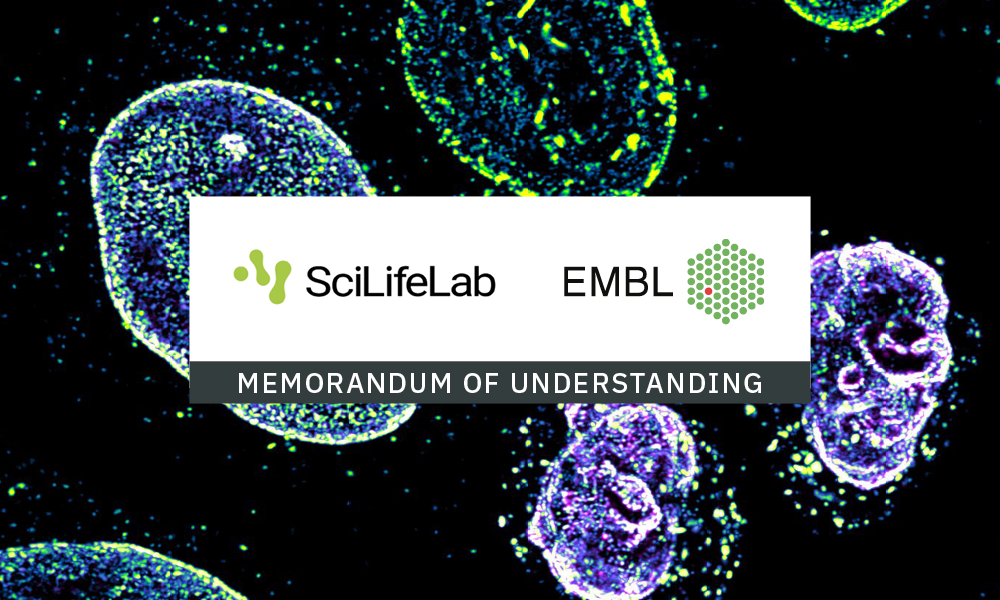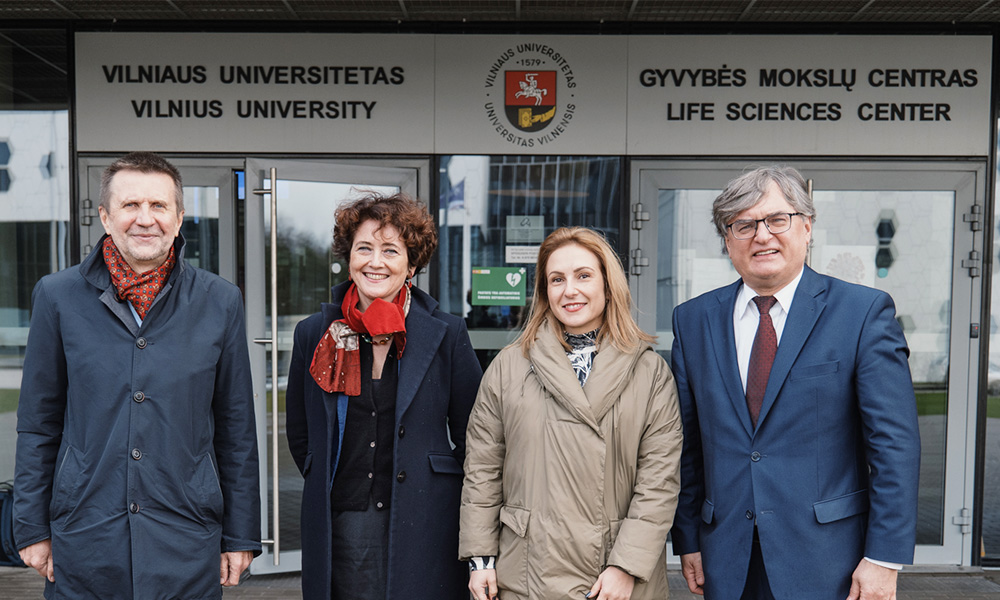 Edit
Edit
A collaboration that keeps growing
An agreement between EMBL and SciLifeLab will increase collaboration to boost science, training, and infrastructure.

It was the end of May 2021 when, as a ‘kick off’ to a new MoU, EMBL and SciLifeLab met virtually to discuss potential scientific collaborations. Fitting nicely with a spring motif, the MoU found fertile ground.
After introductions of future strategic plans, scientific talks from each institution, exchange of information on complementary experimental and computational platforms being developed, and challenges in analysing large multimodal datasets, it became clear this collaboration would have many avenues for fruitful exchange.
SciLifeLab, a Swedish national infrastructure that advances molecular biosciences, is a collaboration initiated by the Karolinska Institute, the KTH Royal Institute of Technology, Stockholm University, and Uppsala University.
The new EMBL Programme and SciLifeLab’s strategic vision are remarkably aligned. In fact, EMBL’s new planetary biology transversal theme in its new Programme inspired SciLifeLab to establish its own planetary biology research track.
But exchanges haven’t just been about the research. The new MoU sparked discussions related to exchange of expertise in setting up training capabilities, professional development, and infrastructure management.
The agreement will continue to enhance connectivity between EMBL and Sweden, increase the availability of scientific data and the use of shared key technologies, and facilitate the exchange of knowledge and talent.
“There is a strong overlap of interests in the fields of biological imaging across scales, structural biology, proteomics, metabolomics, bioinformatics, planetary biology, and health,” said Olli Kallioniemi, SciLifeLab Director. “Like EMBL, SciLifeLab follows a data-driven approach to life science.”
 Edit
Edit
“Again and again, we see how MoUs open the floodgates for new kinds of exchanges and a variety of collaborative activities. It’s about making great science even better.”
— Plamena Markova, Head of EMBL International Relations

